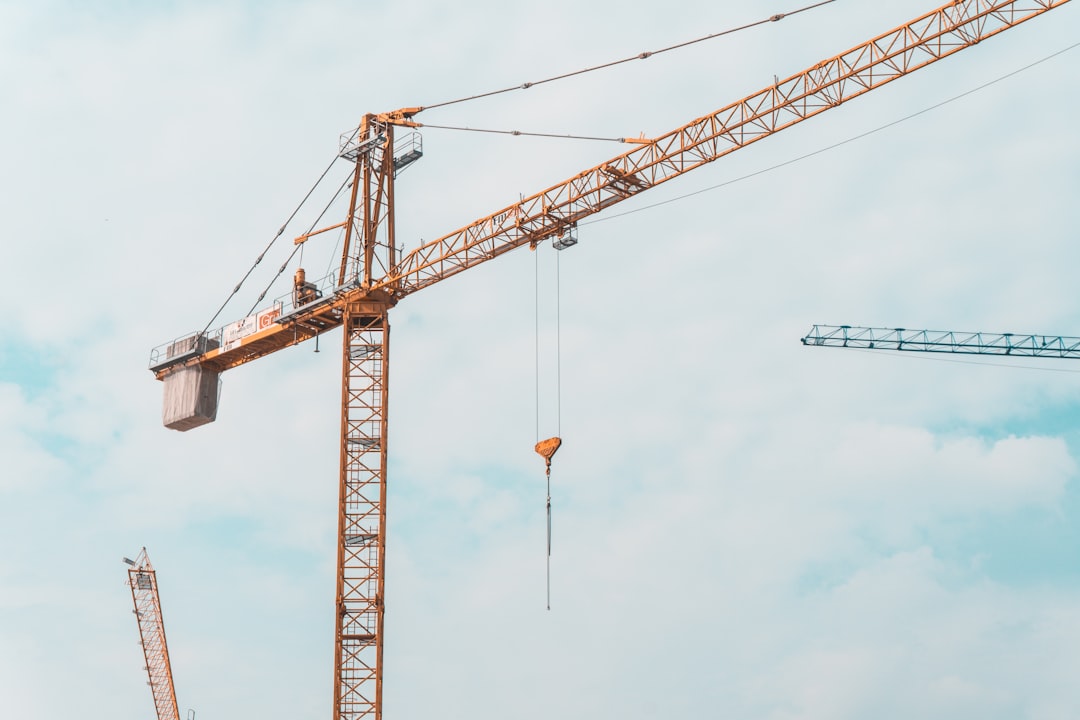Crane Operator Kaiwhakamahi Wakaranga
Crane operators use cranes to move objects such as materials on construction sites, containers on wharves, and heavy parts in factories.
Crane operators may do some or all of the following:
- check their crane's air, water, oil, fuel and lifting equipment
- drive mobile cranes to work sites
- set up cranes and make sure they are secure
- organise the lift plan and allocate work to the team
- make sure loads are not too heavy for the crane, and identify and control any hazards
- follow directions from a team member on the ground
- lift and move loads and place them in the required position.
Crane operators usually start by working as dogmen, who rig (attach) loads to cranes and direct crane operators from the ground.
To become a mobile crane operator you also need to:
- hold the appropriate heavy vehicle licence (depending on crane size)
- be at least 18 years old to drive a mobile crane on the road.
Physical Requirements
Crane operators need to be reasonably fit, have good eyesight (with or without corrective lenses), and good hearing. They must also be comfortable working at heights.
Useful Experience
Useful experience for crane operators includes:
- working as a dogman on the ground below a crane, attaching loads and communicating with the crane operator
- building or engineering work
- truck driving
- operating earthmoving or other heavy machinery.
Personal Qualities
Crane operators need to be:
- responsible and careful
- able to work well independently and in teams
- patient and observant
- good communicators
- good at decision making.
Skills
Crane operators need to have knowledge of:
- safety rules that govern cranes, such as regulations for road operations
- safe working load limits for various cranes
- how to prepare and rig (attach) loads for lifting
- how to maintain and operate cranes, including operating computerised controls
- ground-to-crane hand signals.
Conditions
Crane operators:
- often work irregular hours, including nights and weekends
- work in various locations outdoors or inside, including construction sites, warehouses and wharves
- work in most weather conditions, except high winds and heavy rain
- travel locally to work sites.
Subject Recommendations
There are no specific secondary education requirements to become a crane operator. However, construction and mechanical technologies, English, and maths are useful.
Year 11 and 12 students can learn more about the construction industry, and gain relevant skills, by doing a National Certificate in Building, Construction and Allied Trades (Level 1 and 2) through the BConstructive programme.
For Year 11 to 13 students, the BCITO Gateway programme is a good way to gain construction industry experience.
These programmes may help you gain an apprenticeship, but do not reduce the amount of time it takes to complete it.
Related Courses
Crane Operators can earn around $23-$35 per hour.
Pay for crane operators varies depending on experience, qualifications, location and the type of crane.
- Trainee crane operators, who work as dogmen, usually start on the minimum wage.
- Experienced crane operators usually earn $26 to $35 an hour.
- Experienced crane operators operating large cranes in dangerous conditions can earn $60 to $70 an hour.
Source: Crane Association of New Zealand, 2018.
Crane operators may progress to become training assessors, supervisors or managers.
Crane operators usually specialise in operating particular types of cranes, such as:
- truck loader, tower and mini crawler cranes that move objects on construction sites
- container and ships' cranes, and straddle cranes that move containers on wharves
- mobile, non-slewing articulated and gantry cranes that shift heavy parts in factories
- crawler, mobile and tower cranes that place concrete and build bridges
- gantry cranes involved in steel fabrication.
Years Of Training
1-2 years of training required.To become a crane operator you need to complete on-the-job training and gain a New Zealand Certificate in Cranes(Level 3). You can then gain a New Zealand Certificate in Crane Operation (Advanced Crane Operation) (Level 4).
Te Pūkenga oversees crane operator training.

 Henderson High School
Henderson High School